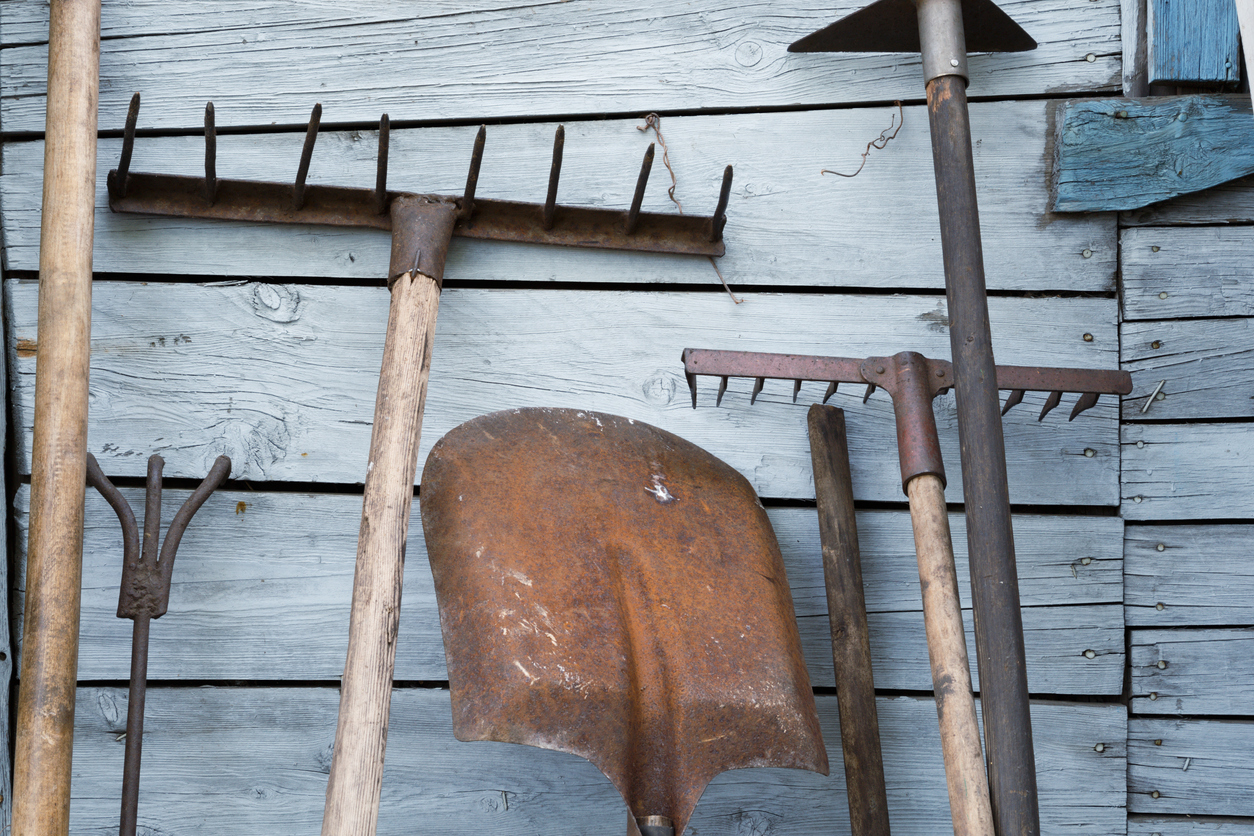After the season: A few chores remain for gardeners

K-State’s Domenghini suggests cleaning tools before putting them in storage
As outdoor gardening slows down for another year, Kansas State University horticulture expert Cynthia Domenghini reminds gardeners of a few late-season chores.
“While there are fewer tasks to do in the garden, it’s a great time to prepare tools for the next growing season,” Domenghini said.
Pruning blades can be cleaned with a scouring pad or warm, soapy water. Sharpen blades using a file or whetstone. The same goes for digging tools; after cleaning, dry tools completely to prevent rust.
“Tools that are properly maintained will last longer and work more efficiently,” Domenghini said.
More details on tool maintenance is available online in the K-State Research and Extension publication, How to Clean and Sharpen Garden Tools.
Garden mums
Once they have finished flowering, garden mums should be cut back to 2-3 inches, Domenghini said.
“Apply a layer of mulch over the top through the winter,” she said. “It is also okay to leave the top growth intact through winter, which can provide insulation for the crown.”
Garden mums should not be allowed to dry out during the winter. If there are periods without rain or snow, gardeners should apply supplemental water, Domenghini said.
Leftover pumpkins
Pumpkins are lovely decorations, but when the season ends, they can become a wasteful problem. After Halloween, many people toss their pumpkins and gourds into the garbage where they are routed to the landfill.
“The lack of oxygen in the mounds of garbage prevents organic matter from breaking down,” Domenghini said. “Consequently, the pumpkins contribute to the problem of overflowing landfills.”
If you’re not able to compost in your own yard, Domenghini suggests looking for a communal location.
“Many cities have a site where green waste can be discarded,” she said. “In Kansas, there are arboretums and other sites that specifically accept pumpkins in November. They will take care of the composting for you to minimize landfill waste.”
Some farms accept pumpkins after the season for animal feed. However, Domenghini said, if you treated pumpkins with bleach, wax or paint, they should not be fed to animals due to the risk of toxicity.
Domenghini and her colleagues in K-State’s Department of Horticulture and Natural Resources produce a weekly Horticulture Newsletter with tips for maintaining home landscapes and gardens.
Interested persons can subscribe to the newsletter, as well as send their garden and yard-related questions to [email protected], or contact your local K-State Research and Extension office.
PHOTO: Old rusty traditional tools, instruments, implements and farm or household equipment on wooden shed wall background. (iStock – AVolke)



